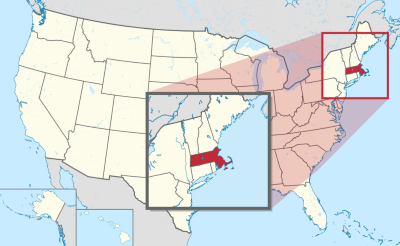Here you’ll find the largest list with Massachusetts hosting reviews. We’ve listed all Massachusetts web hosting providers with our UNCENSORED review and that of users.

Quick Facts
Internet speeds: 19.4 Mbps downlink; 7.3 Mbps uplink
Population: 7 million
Main Internet services: Cable, DSL, Fiber
Main Internet Service Providers: Comcast, Verizon, FIOS by Verizon
Colocation Datacenters: 39
Colocation Market: Emerging
Internet in Massachusetts
According to Akamai.com, the average downlink Internet speed in Massachusetts is 19.4 Mbps and the average uplink speed is 7.3 Mbps.
In 2016, the population of Massachusetts was approximately 7 million. Over 85% of residents have access to the Internet, especially broadband connections.
Main Internet services provided in Massachusetts are as follows:
– Cable – 90% coverage
– DSL – 80% coverage
– Fiber – 20% coverage
Main Internet Service Providers located in Massachusetts are the following:
– Comcast (Cable) – over 90% availability
– Verizon (DSL) – over 90% availability
– FIOS by Verizon (Fiber) – less than 15% availability
Gigabit Internet in Massachusetts
Gigabit Internet services are scarcely available in Massachusetts, as reflected by the very low penetration rate of only 5%. RCN is currently the only provider which offers gigabit services to residential and business customers located in Boston, through the company’s private fiber-optic lines. Gigabit Internet is also available in other cities, but only business customers usually have access.
Colocation Datacenters in Massachusetts
According to datacentermap.com, there are currently 39 colocation datacenters located in Massachusetts. Most datacenters are located in Boston (31), followed by other smaller cities, such as Andover, Fall River, Worcester, as well as Marlborough.
In Boston, prominent colocation providers include the following:
– Digital Realty
– CoreSite
– Iron Mountain
– TierPoint
– XO Communications
Prominent Colocation Providers & Datacenters – Digital Realty
The largest colocation provider located in Boston, and in Massachusetts in general, is Digital Realty. This million-dollar colocation provider operates multiple facilities in Boston, exceeding a total combined square footage of 500,000.
One of the largest datacenters owned by this company is the one located in 128 1st Avenue. This facility features a total square footage of 164,000, and specializes in providing wholesale and retail colocation services to a wide array of local and regional businesses, such as software, education, pharma, and bio-tech. This datacenter is also a sought after choice for customers looking for reliable disaster recovery and business continuity solutions. Amenities include: leasing of cages and dedicated suites, dual utility power feeds, extensive security provision, flexibility in space, power and cooling.
Two other important facilities run by this provider in close proximity to Boston are the ones located in Needham and Bedford. Both datacenters feature 130,000 square feet and 48,000 square feet respectively.
Colocation Industry in Massachusetts
Massachusetts – Boston in particular – is regarded as an emerging colocation market, which is a considerable improvement when compared to the previous years, when the market did not boast too many colocation providers. Massachusetts is home to many leading financial, educational, healthcare, technology and bio-tech businesses, in addition to being one of the most lenient states with regard to datacenter restrictions.
Advantages for Colocation
Advantages for colocation include the following:
– mild summers and quite cold winters, which results in many hours of free cooling for datacenters
– low risk for natural disasters
– moderately developed technical infrastructure in Boston
Disadvantages for Colocation
Massachusetts is rated as one of the most expensive markets in the United States along with New Jersey and New York. Most customers still opt for New York and New Jersey in the detriment of this market because the former two are much more developed in terms of colocation, and can prove to be more lucrative in the long run. Colocation facilities in Massachusetts are also not as plentiful as New York’s, which means that supply cannot keep pace with ever-growing demand.

